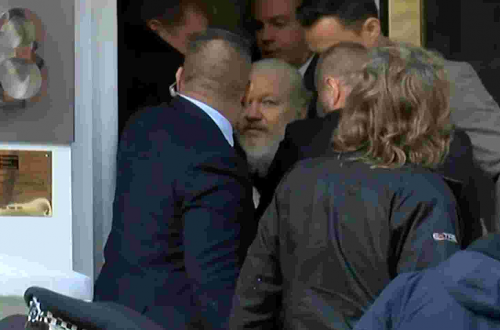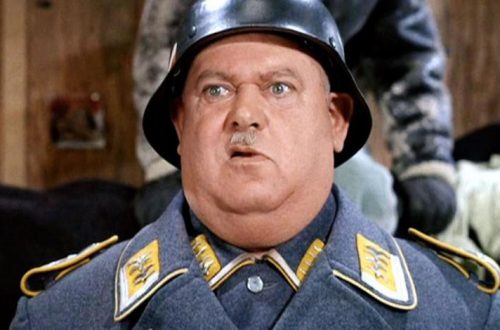Read Kalip Komereddi in The National and Tablet, writing a piece later picked up by Italian national paper Il Post:
I met Sergey, an economics student at the Belarusian State University, later that afternoon. Over a lunch of vegetables and rice, he told me that a number of people he knew, including his parents and some members of the university faculty, had received threats from the KGB. They were being told that they would soon be exposed as foreign agents and paraded on live television. His parents, both academics, had started looking for work in Ukraine and Poland. WikiLeaks, he said, was the reason.
In December 2010, just before the presidential elections, Israel Shamir, an “accredited journalist” for WikiLeaks, travelled to Minsk from London with a huge cache of unredacted US diplomatic cables. He held meetings with Lukashenko’s chief of staff, Vladimir Makei, and handed over the documents. He stayed behind as an “international observer” of the elections and published a piece of pro-Lukashenko propaganda in Counterpunch, the US political journal.
“There is no sign of a police state here,” he wrote. “The President of Belarus, the man the US State Department calls the last dictator of Europe, walks freely among his people … The people were happy, fully employed, and satisfied with their government.” Then he turned on the opposition. “The people know [Lukashenko], and know what to expect from him. Hardly anybody knew the opposition candidates by name.”
Citing a US diplomatic cable that discusses US aid to Belarus, he wrote: “WikiLeaks has now revealed how … undeclared cash flows from the US coffers to the Belarus ‘opposition’.” He concluded with the claim that Belarus “is a socialist country, but the socialism is soft, with plenty of room for private enterprise and personal freedoms”.
Shamir’s article collapses under the weight of its own contradictions. The reason people don’t know the opposition very well is because they are censored, and censorship cannot be challenged in Belarus because it is a dictatorship. The long queues outside exchanges and the hundreds of young men who lurk in the dark corners of Minsk trading currency on the black market – paying up to 10,000 roubles for a US dollar – offer their own version of the “soft” socialism of Belarus.
According to an exhaustive investigation carried out by the Norwegian anti-racist magazine Monitor, Shamir has a long history of association with European fascist parties. He changed his name several times, published anti-Semitic articles, claimed to be a correspondent for the Israeli newspaper Haaretz and was in the habit of offering himself as a speaker at white supremacist conventions in return for a small fee, daily expenses, plane tickets and hotel accommodation for him and his wife.
It’s not known if Shamir billed Lukashenko for his services, nor is it is clear what the cables contain. In a press conference held after the December 19 demonstrations, Lukashenko promised to set up a “Belarusian WikiLeaks” to publish the documents given by Shamir. A few weeks later, a state-run newspaper, Soviet Belarus, began publishing what it claimed were declassified documents: Neklyayev, Bebenin and Sannikov were named as recipients of foreign money. Now, Sergey told me, intellectuals were being targeted. As with the anti-corruption report that sprung Lukashenko into power in 1994, the fear that he may know something about them that they don’t know about themselves is what now breeds paranoia.
Vladimir Neklyayev is an anti-government dissident, who was beaten up on the night of the Belarus elections in Minsk, hospitalised, dragged from his hospital bed by Lukashenko’s goons, and then placed under house arrest, while also not allowed access to the internet.
On this point, we have mentioned Neklyayev in relation to Wikileaks before, contrasting Neklyayev with Julian Assange.
Assange was seen as a brave soul opposing the US government and celebrated by the Left, whereas Neklyayev – a left-wing activist opposing the Belarussian dictatorship – was overlooked by the Left. Moreover, it is very likely that Assange’s actions affected the safety of Neklyayev, because:
Whereas Assange stole documents from a government, the government stole documents from Neklyaev.
While there is a clear link between Neklyaev’s political actions and his current predicament as being under house arrest, it is not so clear with Assange, who is under house arrest for an unrelated incident.
While Neklyaev bravely opposed an oppressive regime for the cause of freedom, Assange’s Wikileaks has helped out oppressive regimes in the name of freedom.
Whereas Assange is still connected to the internet, Neklyaev is banned from the internet -a situation that Wikileaks has effectively encouraged.
When it comes to brave souls who act in the name of freedom, Neklyaev is the substance and Assange is the image. So why is Neklyaev not a cause celebre, in the way that Assange is?
I suspect because Neklyaev is not as glamorous as Assange, he doesn’t speak English as his first language, and Lukashenko is not the current US President.
Julian Assange’s personal behaviour is both sad and disturbing, but the value of Wikileaks does not stand or fall on the basis of how amenable Assange is. Rather, we should look at the way Assange oversees Wikileaks, in order to judge Wikileaks.
Ultimately, Wikileaks may share part of the blame, for the loss of intellectual and academic freedom in Belarus. After all, they paid a neo-Nazi to hand sensitive information about Belarussian democrats to a dictator.
Wikileaks is still seen by many Western thinkers as a positive asset in the quest for intellectual and academic freedom. It is absurd, and downright Orwellian, that Assange should be invited to speak at the New Media Order conference.
Assange’s actions are a threat to internet freedom, not a positive contribution.
The only possible counter-argument I can think of, is:
“Oh well, it’s only Belarus.”

